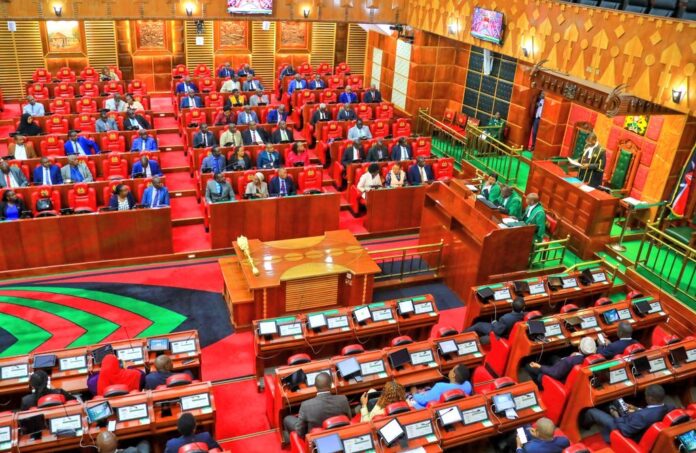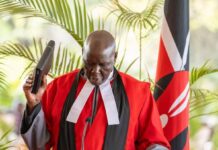President William Ruto has returned two critical Bills to Parliament, raising constitutional and legal concerns over several provisions and calling for revisions before he can assent to them.
On Wednesday, National Assembly Speaker Moses Wetang’ula informed legislators that the President had formally declined to sign the Anti-Money Laundering and Combating of Terrorism Financing Laws (Amendment) Bill, 2025 and the Conflict of Interest Bill, 2023. Instead, Ruto sent back the proposed laws accompanied by a memorandum detailing the areas he wants addressed.
In the case of the Anti-Money Laundering Bill, the President objected to Clause 3(2), which seeks to cap the tenure of the Financial Reporting Centre’s chief officer to a single six-year term. Ruto argued that this clause conflicts with the Constitution, particularly the governance framework outlined in Chapter 15 for independent offices.
He pointed out that the suggested term limit could potentially exceed the constitutionally allowed maximum of eight years for such roles, unlike similar positions such as the Auditor-General or the Director of Public Prosecutions. As a corrective measure, Ruto proposed a transitional clause allowing current officeholders to serve out their terms under the rules in place at the time of their appointment.
The Conflict of Interest Bill, 2023 also drew criticism from the President, who flagged issues in over a dozen clauses — including Clauses 2, 5, 6, 8, and 12 through 35. He recommended comprehensive amendments aimed at tightening loopholes and reinforcing the legislation’s ability to prevent ethical breaches in public service.
One of the major gaps, according to Ruto, is the lack of definitions for key terms such as “family” and “relative” in Clause 2. He warned that public officers might exploit this omission to sidestep accountability by operating through close relations or associates.
To address this, the President proposed explicit definitions. “Family” should include spouses, dependent children, and parents, while “relative” should encompass individuals connected by birth, marriage, adoption, or affinity. He also introduced the term “undeclared asset” to refer to any property not disclosed in official asset declarations.
Furthermore, Ruto objected to Clause 5, which gives shared responsibility to both a reporting authority and the Ethics and Anti-Corruption Commission (EACC) in administering the law. He said this arrangement contradicts Article 79 of the Constitution, which gives EACC the sole mandate to enforce integrity standards within public institutions.
The National Assembly will now re-examine the two Bills. Lawmakers have the option to incorporate the President’s recommendations or vote to pass the original versions — a move that would require a two-thirds majority in both Houses



















